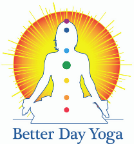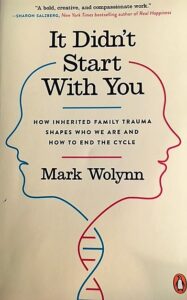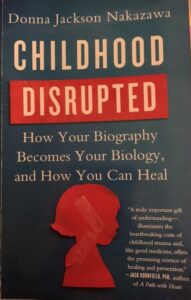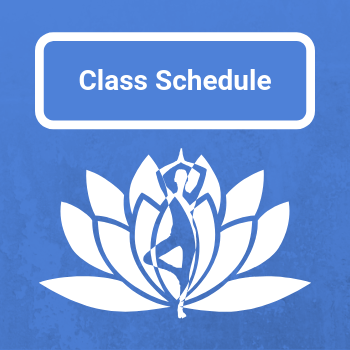Our Ancestors: “We Are Them; They Are Us.” And they can help us—or not. Within our DNA are our ancestors’ memories, which can nourish the dreams of our souls.” ~ Cyndi Dale
In 2008, my husband and I visited Poland—the homeland of our ancestors—for the first time. I was having some issues with my left hip prior, but the pain was off the charts when we landed. The pain in my left hip wouldn’t allow me to walk more than half a block at a time without doing a “last resort” lunge wherever I could to alleviate the pain a little so I could walk another half a block. We had not rented a car so travel by foot was our only option within the various cities we were visiting.
It was still a beautiful trip with unforgettable, precious moments. I refused to let the pain dull the time there or the memories. We had an absolute blast visiting many of the top tourist spots like Krakow, Zakopane, and Częstochowa; as well as the larger cities near my parent’s birthplace villages: Kielce and Rzeszów. We were not in touch with Polish relatives at that time. So our visit did not include family.
More than one person shared their belief that the pain in my hip was a reflection of ancestral healing needed within either my family or even my homeland, Poland. We carry the stories of our ancestors within our energy field. Unresolved conflicts, emotional wounds, damaging judgments, and other limitations held by your ancestors past or present will continue to influence generations to follow. Our ancestor’s memories lie within our DNA. Deep, unexpressed emotions such as grief, anger, guilt, shame and fear can also be passed to us from our ancestors, just like our eye and hair color. Energy from our ancestors passes through the family tree. It’s an amazing thought, isn’t it?
When friends and therapists shared the concept of ancestral healing and connected it to the pain in my hip, I have to say I was more than a little intrigued. As a yoga teacher, I’d learned that we store a lot of emotions in our hips, especially the emotions we don’t want to, or can’t, deal with. Your hips generate any movement forward in your life. If you’re feeling stuck or blocked in some way, your hips are usually involved. The idea that an ancestral block was lodged in my hip resonated with me—especially since the pain went off the charts once we landed in Poland.
My Polish ancestors definitely had deep, unexpressed grief. Undeniably, negative influences from the past affect us mentally, emotionally, and spiritually; and as we’ve learned from mind/body science, they also affect us physically and energetically. Since the hips are where every initiative starts, any pain or trauma we have stored in the hips that’s stopping us from physically moving forward will also stop us from energetically moving forward.
Perhaps visiting Poland without connecting with family on our first visit stopped my hip from moving forward with ease on our trip. Perhaps my ancestral homeland was “holding on” to my every step insisting I do more than just visit the tourist stops. Who can say?
“Emerging trends in psychotherapy are now beginning to point beyond the traumas of the individual to include traumatic events in the family and social history as part of the whole picture. Tragedies varying in type and intensity—such as abandonment, suicide, and war, or the early death of a child, parent, or sibling—can send shock waves of distress cascading from one generation to the next. Recent developments in the field of cellular biology, neuroscience, epigenetics, and developmental psychology underscore the importance of exploring at least three generations of family history in order to understand the mechanism behind patterns of trauma and suffering that repeat.” ~ Wolynn, Mark. It Didn’t Start With You: How Inherited Family Trauma Shapes Who We Are And How To End The Cycle. New York: Penguin Books, 2017.
My ancestors were immersed in traumatic events. Poland’s geography placed them in the middle of fighting powers resulting in much destruction, tragic losses and World Wars. Even knowing very little about my history, and after having only written of my grandmother’s lives thus far, their history includes loss of a mother, father, husbands, children, and a suicide attempt. Both of my parents were prisoners of war.
There is research based in neuroscience, psychology and medicine called the “Adverse Childhood Events” (ACE) study. This study documents exact ways childhood adversity biologically alters us for life. Adverse childhood events alter our brain function and immune system, affecting both our physical health and our longevity in life. (To review the study, go to the American Journal of Preventative Medicine, May 1998, Volume 14, Issue 4, pages 245-248.)
This makes sense, doesn’t it? Research shows the rational part of a teens brain isn’t fully developed until they’re 25. If traumatic events affecting your immune function, nervous system, and physiology are occurring while your brain is still forming, how can it not affect the brain? The environment within which we form affects the results of our genetic make-up. It affects how we react in the world, how we parent, how we work, how we make friends, how we love, and how we age. It even affects the threshold of when we respond to stressful events.
“In other words, when a child is young and his brain is still developing, if he’s repeatedly thrust into a state of fight or flight, this chronic stress state causes these small, chemical markers to disable the genes that regulate the stress response—preventing the brain from properly regulating its response for the rest of his life.
….early chronic stress biologically reprograms how we will react to stressful events for our entire lives. That long-term change creates a new physiological set point for how actively our endocrine and immune function will churn out a damaging cocktail of stress neurochemicals that barrage our bodies and cells when we’re thirty, forty, fifty, and beyond. Once the stress system is damaged, we overrespond to stress and our ability to recover naturally from that reactive response mode is impaired. We’re always responding.” Nakazawa, Donna Jackson. Childhood Disrupted. How Your Biography Becomes Your Biology, and How You Can Heal. New York: Atria Paperback, 2015.
We all know what stress does to the body long term, right? It creates inflammation in the body and we are literally “…marinating in those inflammatory chemicals for decades.” It’s no wonder diseases such as autoimmune disease, irritable bowel syndrome, fibromyalgia, chronic fatigue, heart disease, migraines, cancer, and many others are the result.
Having an adult in your childhood that you trusted, who “had your back”, and who listened when you needed to talk helps to buffer adverse childhood experiences. These relationships help to build your resilience factor.
Other ways to increase your resilience include staying positive and hopeful, having goals you set and move towards, fostering connections within your circle of family and friends, and accepting change as a fact of life. Taking care of your health by exercising regularly, eating a nourishing diet, reducing stress through mindfulness, meditation and yoga, and making time for fun are ways you can improve your brain’s neuroplasticity. We can all do this.
This is why I teach trauma-informed yoga. This is why I incorporate Ayurveda (the science of life and self- healing) into my life and my teachings. It has been through my trainings that I discovered some of the answers to my physiology—why I worry so much, why I may have developed an auto-immune disease, and why I feel so much better after yoga and meditation. We teach what we need to learn, don’t we? This I do for me. You can too. Do more yoga.



